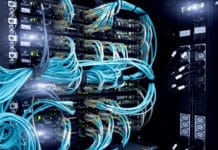The most interesting detail to come out of STEC’s (NASDAQ: STEC) quarterly earnings report last night is just how much growth may still lie ahead for the enterprise solid state drive (SSD) maker.
The company’s eye-popping growth rate is coming almost entirely from EMC (NYSE: EMC), which added the drives to its high-end storage arrays more than 18 months ago. STEC’s other announced data storage customers — Sun (NASDAQ: JAVA), IBM (NYSE: IBM), HP (NYSE: HPQ), Hitachi Data Systems, Fujitsu and Compellent (NYSE: CML) — have yet to ramp up production, according to STEC CEO Manouch Moshayedi.
Moshayedi said on STEC’s conference call that its other SSD customers “have to come up and do the marketing and sales that the first customer is doing to get up to those sort of volumes. But going forward, I can’t predict exactly if it’s going to be next quarter or the quarter after. Everybody is working extremely hard getting SSD on enterprise storage devices. … So I think this is a very good indication of what could happen to our revenues going forward.”
STEC claims to be working with every major storage OEM, so it is likely the company could be in talks with others like NetApp (NASDAQ: NTAP), Dell (NASDAQ: DELL) and NEC. Dell is an EMC partner and also boasts an SSD deal with Samsung (see Dell Offers Solid State Drives, New EMC Storage Array).
STEC expects to sell $200 million of its ZeusIOPS enterprise SSDs this year. With EMC as its sole volume customer — and EMC commanding about a 23 percent share of the data storage hardware market — it’s not hard to imagine SSD sales hitting the $1 billion mark once the market gets fully up to speed.
But STEC may face much more competition by then. The list of vendors trying to catch STEC is long, but so is the enterprise drive qualification process, and it could be mid-2010 before the company faces real competition.
Stifel Nicolaus analyst Aaron Rakers wrote in a research note last night that STEC “increasingly appears to be a well-positioned player in a still very early stage secular growth story.”
Rakers said EMC’s introduction of Fully Automated Storage Tiering technology, or FAST, into its high-end Symmetrix V-Max later this year could further boost STEC’s sales.
STEC’s second-quarter revenues were $86.4 million, an increase of 35.9 percent from the first quarter of 2009, growth that came entirely from a 125 percent increase in ZeusIOPS sales to $57.7 million.
But the company’s shares were down 7 percent today on news that Moshayedi and his brother, president and CTO Mark Moshayedi, are trimming their stake in the company from about 35 percent to 20 percent.
Follow Enterprise Storage Forum on Twitter





